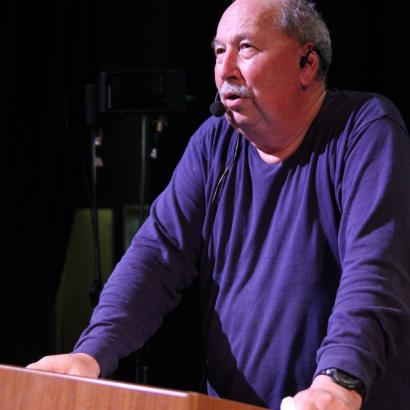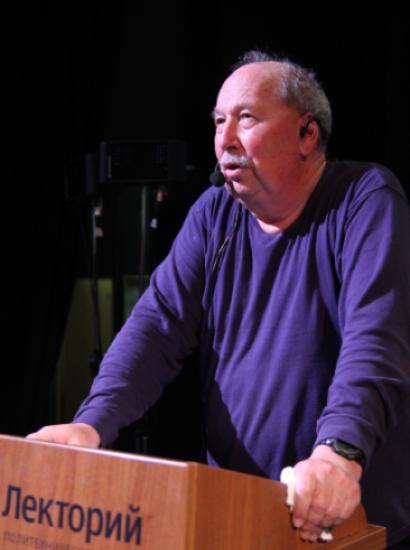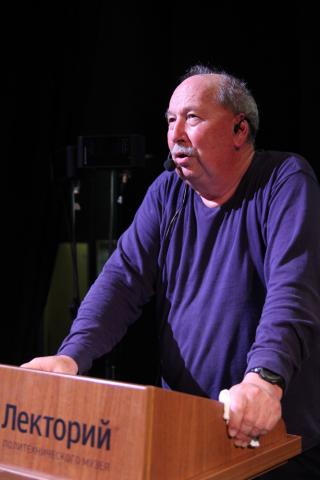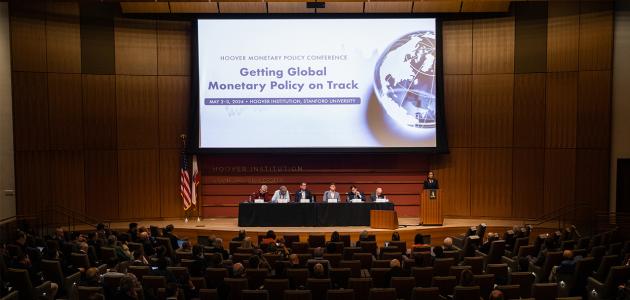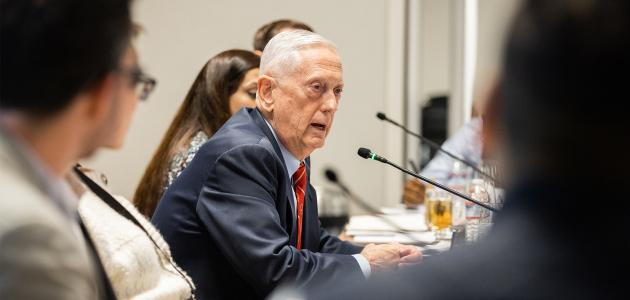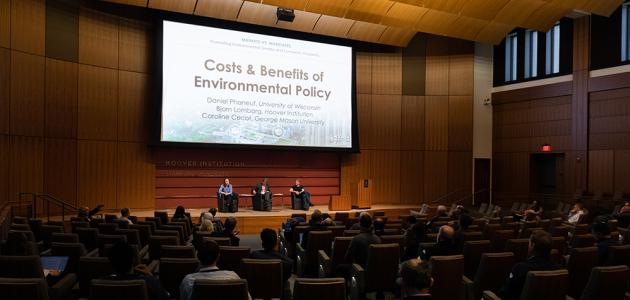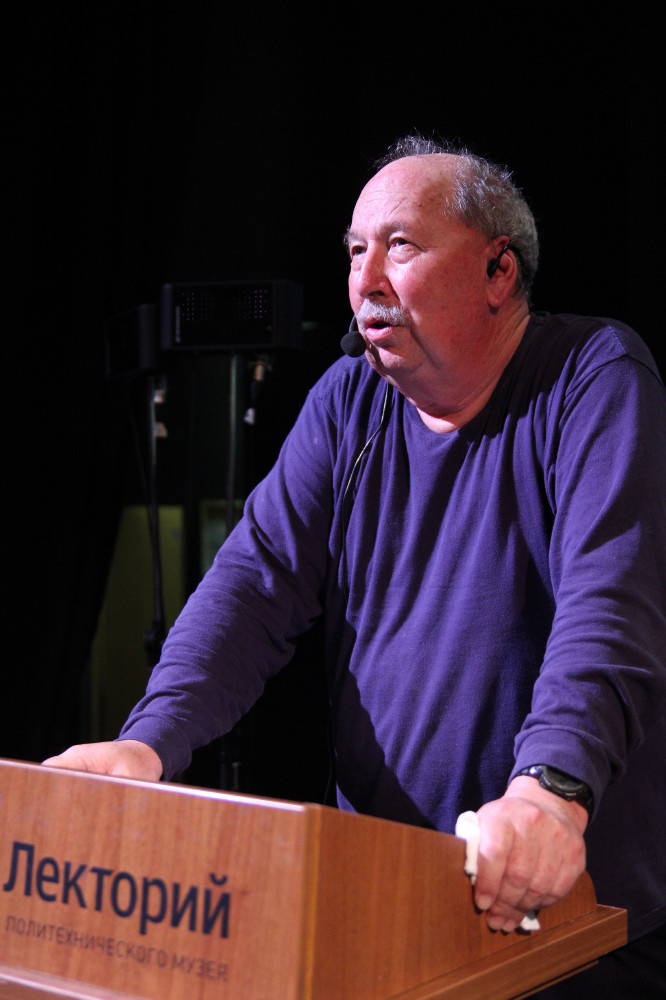
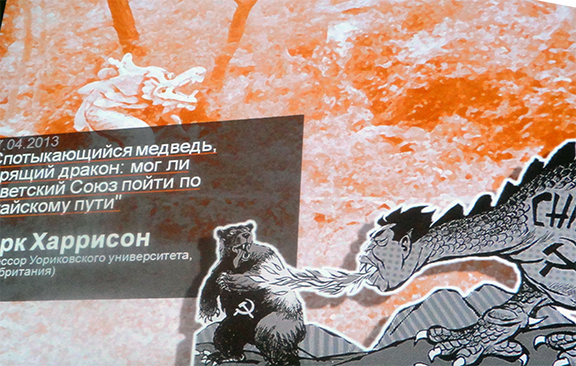
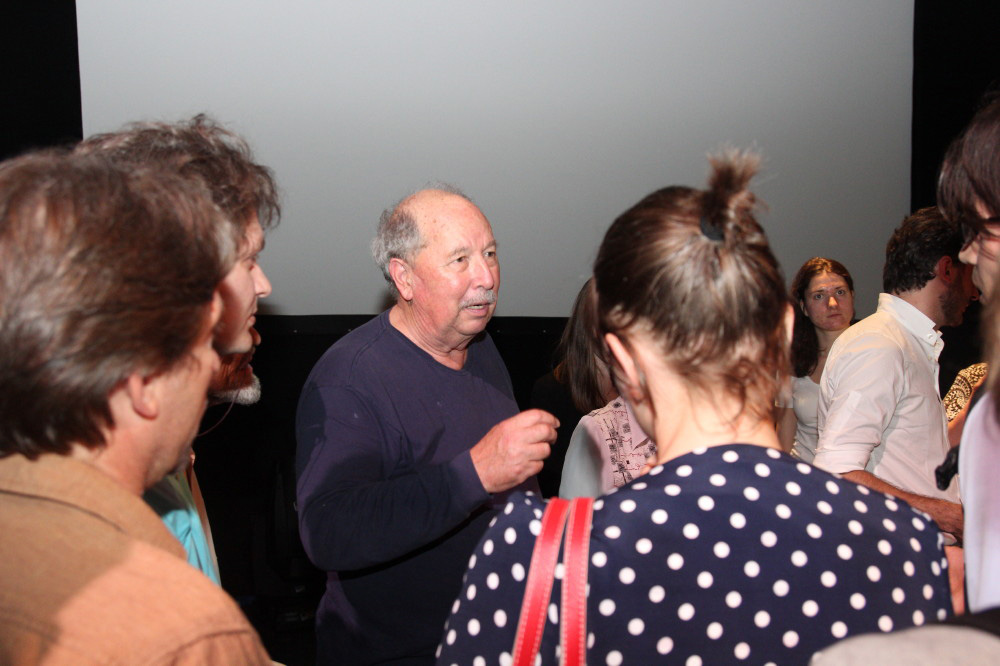
As a thirty-five-year-old economist, Egor Gaidar, the first prime minister in the Yeltsin administration, introduced the radical reforms that set in motion that Russian transformation in January 1992. He died at age fifty-one in December 2009, shortly after the publication of his major work, Russia: The Long Run (MIT Press).
The Egor Gaidar Foundation was created by colleagues, friends and patrons. Its major undertaking is a lecture series entitled The Economic History of Russia in the Twentieth Century, in conjunction with the Polytechnic Museum in Moscow.
Two Hoover fellows were invited to deliver the inaugural Gaidar lectures. Mark Harrison spoke on “Stumbling Bear, Soaring Dragon: Could the Soviet Union Have Gone Down China’s Path?” on April 17. The video can be viewed at http://lectures.gaidarfund.ru/articles/1663. Hoover fellow Paul Gregory followed on April 22 with a lecture entitled “Economic Causes of the Collapse of the Soviet Union.” His lecture can be viewed at http://lectures.gaidarfund.ru/articles/1683.
Both lectures were delivered in the main auditorium of the historic Polytechnic Museum, followed by lively questions and answers from the more than four hundred attendees.
Harrison explained why the Chinese gradualist approach was not available to Gorbachev; Gregory modeled the timing of the Soviet collapse and explained why the impending end of the Soviet Union was missed by both the intelligence and the academic communities.
Harrison’s and Gregory’s thoughts were also recorded by the educational series Postnauka in an effort to reach a larger Russian audience.







